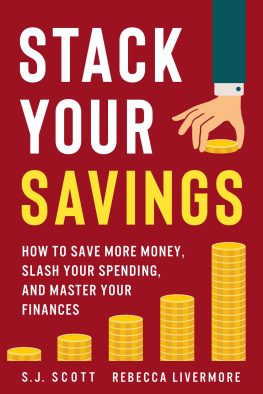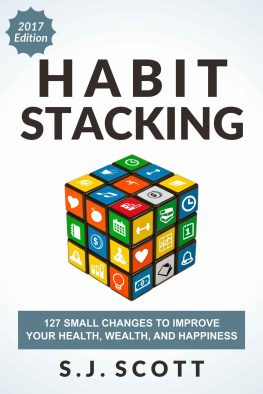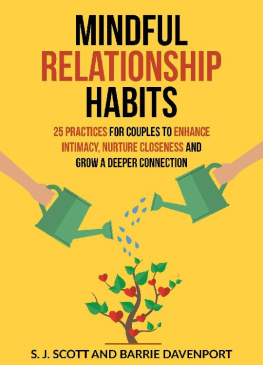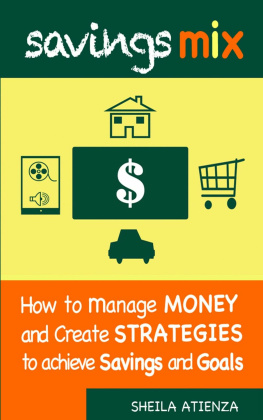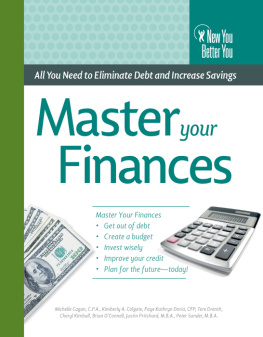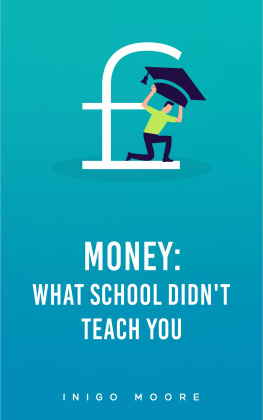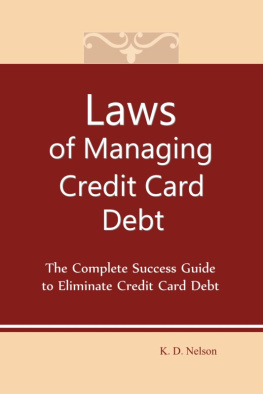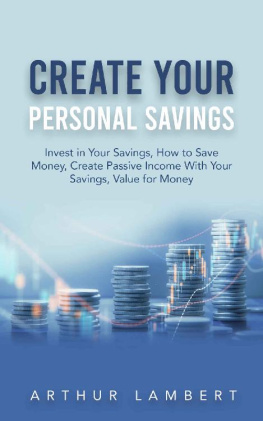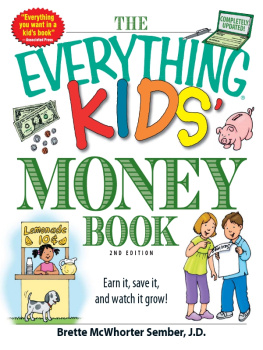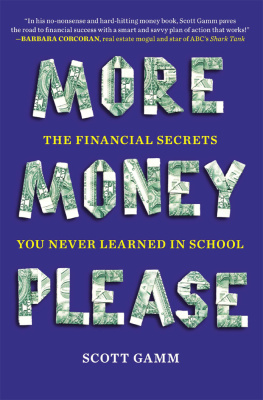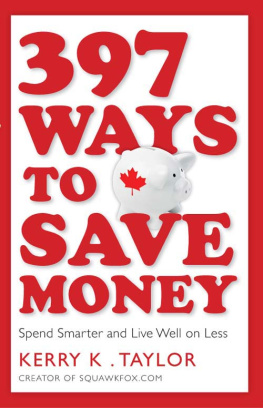Stack Your Savings
How to Save More Money, Slash Your Spending, and Master Your Finances
S.J. Scott
Rebecca Livermore
Stack Your Savings: How to Save More Money, Slash Your Spending, and Master Your Finances 2019 by Oldtown Publishing LLC
All rights reserved. No part of this book may be reproduced in any form without permission in writing from the author. Reviewers may quote brief passages in reviews.
Disclaimer
No part of this publication may be reproduced or transmitted in any form or by any means, mechanical or electronic, including photocopying or recording, or by any information storage and retrieval system, or transmitted by email without permission in writing from the publisher.
While all attempts have been made to verify the information provided in this publication, neither the author nor the publisher assumes any responsibility for errors, omissions, or contrary interpretations of the subject matter herein.
The views expressed in this book are those of the author alone, and should not be taken as expert instruction or commands. The reader is responsible for his or her own actions.
Adherence to all applicable laws and regulations, including international, federal, state, and local governing professional licensing, business practices, advertising, and all other aspects of doing business in the US, Canada, or any other jurisdiction is the sole responsibility of the purchaser or reader.
Neither the author nor the publisher assumes any responsibility or liability whatsoever on the behalf of the purchaser or reader of these materials.
Any perceived slight of any individual or organization is purely unintentional.
Contents
INTRODUCTION
Money doesnt grow on trees!
Perhaps your parents spoke such words to you when you were growing up. As a teenager, you may have rolled your eyes in response, but once you got out on your own, the saying made more sense.
While its true this saying reveals a scarcity mindset, the fact of the matter is: in the real world, many of us struggle with earning and saving money. Often, it doesnt even matter how much money you makewe all have unique challenges when it comes to money.
For instance, perhaps you can relate to one or more of the following scenarios:
You Work at a Low-Paying Job
People fall into the low-income category for many reasons. Perhaps youre a student or a recent graduate who hasnt yet landed a good job.
Maybe youre a single parent. Or you might be a one-income family, with one parent staying home to take care of the kids. Not only is money tight, but as a stay-at-home parent, you wish you had a way to contribute to your familys financial well-being.
Perhaps youre a retiree, and you havent saved enough for retirement. At this stage in your life, you dont want to work or perhaps cant find work or are physically unable to work. Yet your pension doesnt cover your living expenses, much less the things youd love to do such as travel.
Maybe youve lost your job or are underemployed and now struggle to make your house or car payment.
Regardless of which scenario fits you, the bottom line is that your income isnt enough to meet your expenses.
You Make Decent Money but Have High Expenses
Perhaps you have an average, or even sizeable income, but you have big expenses.
Maybe for good or bad reasons, youve racked up a lot of debt. Perhaps you, your spouse, or your child has medical issues that resulted in thousands upon thousands of dollars in medical bills. Perhaps you live in a city like San Francisco or New York that has a very high cost of living, where your mortgageeven on a fairly modest homeeats up half your income.
Regardless of the reason, no matter how hard you work, at the end of the month you have little money left.
You Struggle with Planning for the Future
Maybe youre not struggling to pay your day-to-day bills, but you dont have much, if any, money left over to save for retirement, toward a down payment on a home, or for your childrens college education.
You may feel hopeless when you think of the future because it just doesnt seem possible to make progress in those areas.
You Want to Afford the Finer Things in Life
Perhaps youre one of the fortunate ones who has enough income to pay your bills and invest in your retirement, but theres not much left for the finer things in life. You havent gone on a real vacation in years. You can only dream about having nice furniture, a newer car, or name-brand clothing for yourself or your children.
Granted, these things arent necessary for a happy life, and some may even scoff at your desire for the finer things in life. But when it comes right down to it, theres nothing wrong with going on a dream vacation, buying designer clothing, or sending your kids to an exclusive private school.
Unfortunately, if youre like many people, in spite of having a good job, up to this point, you can only dream about such luxuries.
You Dream of Early Retirement
Perhaps you dream of early retirement or want to reach a point of financial independence where you can live off the interest of your savings. As well explain, this is a goal Steve is currently working on.
You may not mind working, but you dont want to have to work, or you may hope to get to the point where you can afford to do more meaningful work, even if it pays less.
The bottom line?
It doesnt matter what financial goal youre striving for. The answer to each of these scenarios is to is build the stack your savings habit.
Introducing Stack Your Savings
In the following book, Stack Your Savings: How to Save More Money, Slash Your Spending, and Master Your Finances , we will talk about the power of making small financial decisions that will have a positive, cumulative effect on your financial situation. Each action might not seem important, but if you apply this strategy for over a period of monthseven yearsyoull end up saving a lot of money.
Many people make the mistake of thinking that all their problems will be solved if they simply make more money. Increasing income may help, and its something that especially those in the low-income category may want to work on, but its only one part of the equation.
The other part of the equation is saving money . In fact, saving money is often preferable to making more money.
Consider this: You pay taxes on the money you make, but not the money you save. So any savings you can find will have a larger impact on your personal finances than making more money.
For example, if you make $1,000 and pay 20% in taxes, you actually end up with $800. But if you save $1,000 by getting good deals, thats worth the full $1,000. In addition to that, increasing your income can put you into a higher tax bracket, which compounds this problem. Because of this, if you have a choice between reducing your monthly expenses by $1,000 and making an extra $1,000, reducing costs makes more sense.
In addition to paying fewer taxes, here are a few other benefits to consider.
Benefit 1: You Spend Less on Necessities
If you spend less on necessities, youll have more money to pay down debt, which will ultimately lead to reducing your overall monthly expenses.
Even without debt, reducing your expenditures on necessities such as housing, transportation, and food gives you more money to plan for the future in the form of things like saving for retirement, adding to your childs 529 college savings fund, and saving for a down payment on a home.
Benefit 2: You Enjoy Luxuries You Otherwise Couldnt Afford
Do you dream of things that seem beyond your reach? Whether big or small, learning to save money can make those dreams reality.
For example, Steves wife, Kristin, is a genius when it comes to finding like-new clothes for their son. None of these items are purchased directly from stores. Instead, Kristin has a system where she buys bags of clothes from the wealthier neighborhoods in their area. And the best part? Many of these items were never wornsome still even have the tag on them.
Next page
